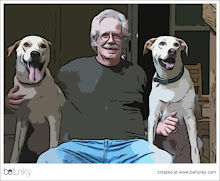(This prose poem is one of a series titled, "Tone Poems of the Cowboy", which tries to capture the tone and attitude of the American archteypal cowboy.) This is the spoken word version of the poem.
The Cowboy Speaks of Solitude
I want to thank you all for taking time from your busy schedules to listen to these poems. Not too many people will read a poem and fewer still come out of their way to sit and listen to poems being spoken, especially the poems of a lonesome cowboy. I say that because you might think it’s lonely out on the trail working the herd or mending a fence line. But that is not the case. My life offers the great advantage of plentiful solitude. A solitary life establishes independence. As independence grows loneliness goes. You might have to think about that to see its truth. I will point out that a solitary person has time to think. Loneliness comes from missing things that seem dear. Think about it. What’s to miss? The squeal of the urban pigs? The gobbets of excrement let fly in the air as the pundits of propaganda strive to fill your ear? The ubiquitous stench of the foul stew of egotism emanating from the pot of every person? The perpetual program hammering your brain? The program that teaches you to be programmed, to expect it and accept it as necessary? I don’t miss that a bit. The entire world is arranged to highjack your mind – whereas a poem is designed to offer you the opportunity to think. It’s only an offer; you can take it or leave it. My life will remain worthwhile whether or not you pay attention to the words in this poem. Can you make the same claim? The next poem you hear won’t be as sensible as this one. You might have to think more than you’re normally inclined.





Jim,
ReplyDeleteI like the poem fine, but I wondered why, if it is a "cowboy poem," you avoid cowboy lingo. For a while, a few years ago, cowboy poets were very popular and showed up on Garrison Keillor. Is it possible to keep your message intact amid a clutter of tumbleweeds, campfires and howling wolves?
Interesting commentary on the value of solitude. Personally, I like that you call it a cowboy poem but don't include a lot of traditional cowboy imagery--it's like seeing a new side of what being a cowboy means in this modern world.
ReplyDeleteI cherish my solitude and rarely feel lonely out here by myself anymore. It's sometimes difficult to go between the solitary world and the rest of the world, like being rudely woken from a beautiful dream.
Karen
So, how is a cowboy different from a farm hand or a fisherman? How is cowboy loneliness different from park ranger loneliness? I'm lonely, too, but I'm not a cowboy ... and I also treasure my solitude just as this cowboy does. When I first read this poem, I thought of the old Bing Crosby song, "Don't Fence Me In."I can't look at hobbles and I can't stand fences/ Send me off forever, but I ask you please, don't fence me in."
ReplyDeleteWell, speaking as a cowboy is about trying to capture a certain tone and attitude in this poem and the other cowboy poems. This tone of voice I hope reflects what I feel is an archetypal narrative in the Ameircan consciousness. In this sense Cowboy is not much different than fisherman or farmhand. I choose the Cowboy as the iconic name for the archetype because of the rich history of cowboy movies that I grew up watching. I didn't watch too many farmhand movies, but, yes, a few fisherman movies. Cowboy just stands out as the most powerful image. And the Monty Montgomery role as 'The Cowboy' in "Mullholland Drive" really set the tone and attitude for these poems. If you watche movie you will see that The Cowboy almost achieves a sense of speaking as Fate.
ReplyDelete